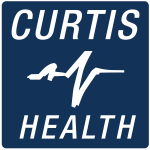Rainy dark days, shorter hours of daylight, less sunshine; November can be an emotionally challenging month for many people.
Seasonal Affective Disorder (SADs) makes up about 10% of depression cases and woman seem to be more affected than men1 . Eating a whole foods diet, while avoiding refined foods and sugar can help to alleviate symptoms.
Common symptoms of SADs are:
- Feelings of sadness, worthlessness
- Feeling Irritable or moody
- Being less interested in things you usually like to do
- Withdrawal from social events, family, friends
- Changes in sleep patterns
- Changes in appetite and cravings for sugar and simple carbohydrates
- Weight gain
- Decreased energy levels and motivation
Depression of any form encompasses the whole body. A holistic approach, supporting the brain, body and soul is the key to managing depression.
“Let food be thy medicine and medicine be thy food.”
― Hippocrates
Avoid:
- Sugar and refined foods. Sugar can cause inflammation in the body and the brain. There is clear evidence that links inflammation and depression 2. Reach for snacks high in quality protein and healthy fats that will satisfy the sweet craving. Homemade trail mixes with raw nuts, seeds, dried fruit (no sulfates) and dark chocolate or make your own protein/granola bars.
- Alcohol is a depressant at higher doses and can worsen depression. Alcohol disrupts the balance of some neurotransmitters in the brain. Cutting back on the amount of alcohol you consume is beneficial for fighting the blues. Replace alcohol with a kombucha, infused sparkling water or herbal teas.
Include:
- Colorful fruits and vegetables that contain antioxidants to help fight free radical damage and oxidative stress that affects the brain. Blueberries, raspberries, peppers, beets, red cabbage, kale, spinach and goji berries are good choices and should be included in your diet. Commit to ensuring your plate of food is colorful.
- Selenium found in brazil nuts, seafood and whole grains is a powerful antioxidant and is good for cognitive function.
- Foods high in vitamin A – carrots, sweet potatoes, yams, pumpkin, squash. Perfect ingredients for a crock pot meal!
- Probiotics to feed the ‘good’ gut microbiomes. A healthy gut can support a healthy brain and an unhealthy gut can upset the biochemical balance of the brain. Full fat plain yoghurt, kefir, kimchi, sauerkraut, kombucha should be staples in your diet to support a healthy gut and brain.
- Vitamin D plays a role in protecting our brains from oxidative stress and neuroinflammation. Sunshine is the main source of Vitamin D and the body can store it in the liver, brain, spleen and bones. Food sources include eggs, cooked salmon, turkey and chicken. Supplementation during the winter months maybe beneficial.
- Omega 3 fatty acids, as the brain and central nervous system are composed mainly of fat. Omega 3 FA is necessary for cognitive function and supports a positive mood. Good sources of omega 3 fatty acids are wild salmon, mackerel, sardines, flaxseed, hemp seeds, chia seeds, avocado oil, and cooked oysters.
- B vitamins are required for synthesis of neurotransmitters (adrenaline/noradrenalin, dopamine, serotonin and melatonin). Nutritional or Brewer’s yeast, sunflower seeds, sesame seeds, spinach, shitake mushrooms, organic poultry are good sources of all your B vitamins.
Quality sleep: The brain requires 7-9 hours of quality sleep to recover from its daily work. Quality sleep is essential if we want to be able to focus, learn and maintain a positive outlook. Create a nightly sleep ritual that signals to your brain and body that it’s time to fall asleep.
Exercise stimulates positive chemical changes in the brain that enhances mood. It can also help to protect memory and thinking skills. Daily physical activity is essential for good brain health.
Eat well, sleep well, exercise and be Happy!
1 https://cmha.bc.ca/documents/seasonal-affective-disorder-2/
2 https://pdfs.semanticscholar.org/c64d/ff80671cdca43493ede4c6ba3b7c2da94075.pdf




